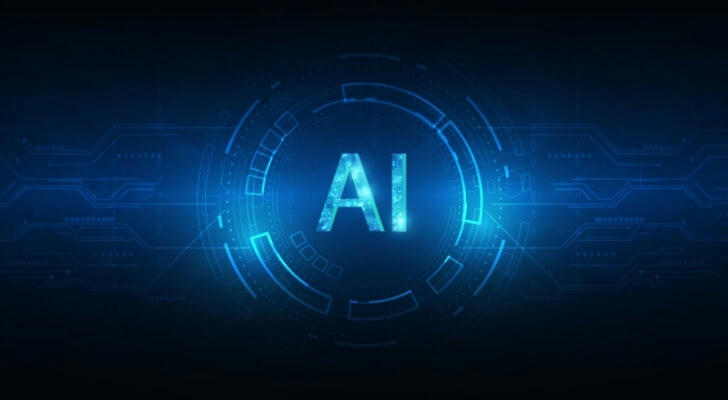From AI to Programmer: How to Become a Tech Leader in the New Era
The rapid advancement of technology is reshaping the global economy and job market. Fields like Artificial Intelligence (AI), software development, and big data are becoming the new blue-collar frontiers of the 21st century, offering unprecedented opportunities for people from all walks of life.
Regardless of age or background, entering the tech industry is no longer a distant dream. With the right learning path and practical skills, even those without a technical foundation can break into this dynamic field and build a future-proof career.
Learning programming and AI not only opens doors to new job opportunities, but also enhances logical thinking and problem-solving abilities—skills that are valuable in all aspects of life and work.

🧠 What Are Programming and AI Learning Courses?
Programming and AI learning programs are structured training courses designed for beginners and career changers. They provide foundational knowledge, hands-on experience, and real-world project training to prepare learners for various tech roles.
Typical course content includes:
✔ Programming Languages – Basics and intermediate knowledge of Python, JavaScript, HTML/CSS
✔ Algorithmic Thinking – Data structures, logic design, and problem-solving strategies
✔ AI & Data Analysis – Fundamentals of machine learning, data handling, and visualization
✔ Project-Based Practice – Real-world team projects simulating industry environments
According to Coursera’s 2024 Skills Report, 87% of hiring managers prefer candidates with project portfolios over those with formal degrees alone.
🚀 Why Learn Programming and AI?
1. Expand Career Options and Access High-Paying Jobs
Tech roles are growing rapidly. According to the LinkedIn Global Jobs Report, the demand for junior developers, AI trainers, and data analysts has risen by over 40% in the past three years.
With hands-on skills and real project experience, even non-computer science majors can enter diverse industries including tech, finance, healthcare, and logistics.
2. Strengthen Logical Thinking and Problem-Solving Abilities
Programming encourages structured thinking. A Stanford University study found that regular coding practice improves cognitive flexibility, leading to better decision-making and time management in daily life.
For example, one learner from a sales background applied her coding skills to automate reports, reducing her team's workload by 30%.
3. Stay Competitive During Digital Transformation
Digital tools are becoming essential in almost every industry. Knowing how to analyze data, automate tasks, or build simple apps can make employees far more efficient and valuable.
Even in non-technical roles, coding literacy leads to smarter workflows and improved communication with technical teams.
4. Unlock Remote Work and Flexible Employment
Many programming-related jobs allow for freelance or fully remote positions. This flexibility is especially beneficial for parents, mid-career switchers, and retirees looking for meaningful, part-time work.

🧩 What Do Tech Learning Courses Include?
A well-rounded tech course typically includes these core modules:
1. Programming Basics
Intro to Python, JavaScript, HTML/CSS
Logic control, loops, functions, and debugging
Real-time coding exercises
2. Data and Algorithm Thinking
Arrays, dictionaries, trees, and graphs
Sorting/searching algorithms and recursion
Problem decomposition and step-by-step reasoning
3. AI and Data Handling Foundations
Introduction to machine learning and neural networks
Hands-on tools like Pandas, TensorFlow, and Scikit-learn
Data cleaning, analysis, and visualization
4. Real-World Project Development
Build websites, mobile apps, and data dashboards
Use Git for version control and team collaboration
Learn software testing and deployment basics
According to the World Economic Forum, coding will be among the top 10 most critical job skills by 2030. Tech fluency will be a key driver of job security and career growth.
👥 Who Should Learn Tech Skills?
These courses are especially well-suited for:
✔ Curious about digital tools or app creation
✔ Enjoy solving logical problems or puzzles
✔ Seeking career transformation or higher income
✔ Looking for remote work or freelance opportunities
Case in point: 52-year-old Laura, a former schoolteacher, completed a six-month part-time AI course and is now working as a junior data analyst at a logistics firm—fully remote, with flexible hours.

🛠️ How to Get Started?
Here’s how beginners can begin their tech journey:
✅ Read Introductory Books – Start with “Automate the Boring Stuff with Python” or “The Pragmatic Programmer”
✅ Join Online or Local Courses – Platforms like Coursera, edX, and freeCodeCamp offer structured learning
✅ Contribute to Open Source Projects – Gain real-world experience via GitHub and developer communities
✅ Engage with Tech Communities – Follow Reddit forums, join Discord groups, and attend free coding webinars
Pro Tip: Many tech bootcamps now offer scholarships or income-share agreements, allowing you to learn now and pay later based on your job outcome.
✅ Summary
Programming and AI are the universal skills of the digital age. Whether you're switching careers, re-entering the workforce, or simply upgrading your toolbox, tech education opens doors to endless opportunities.
With the right training and mindset, anyone—from fresh graduates to mid-career professionals to retirees—can become a confident contributor to the future of technology.
💡 Technology is not a barrier—it's a bridge. A bridge to greater opportunities, smarter work, and a more empowered you.
